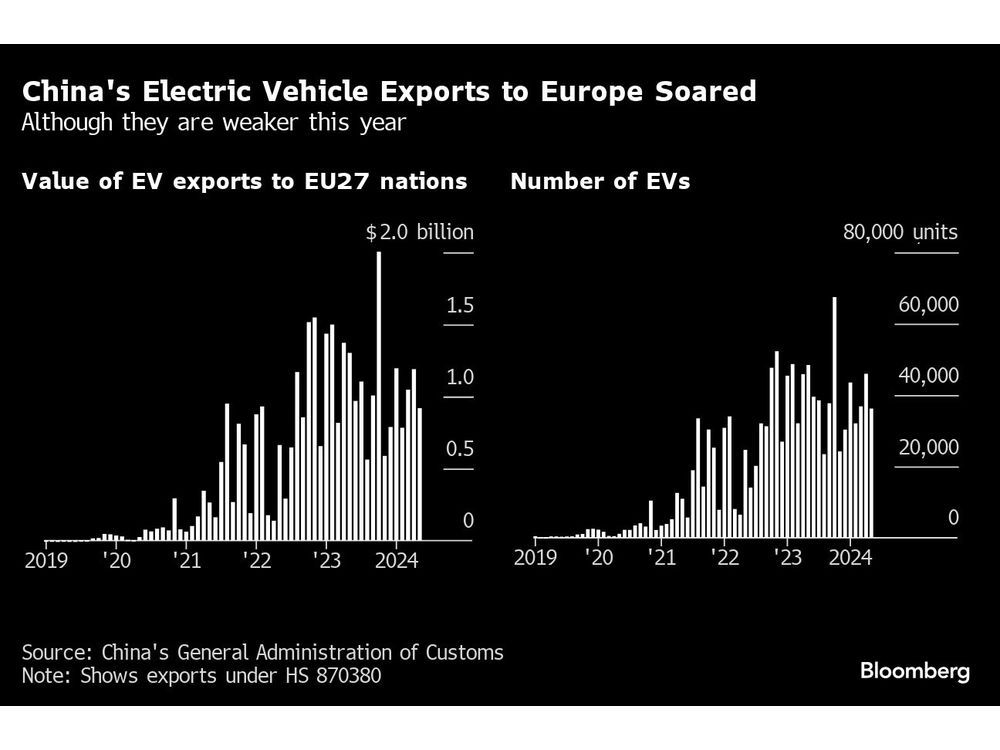
Article content
(Bloomberg) — China has lodged a complaint with the World Trade Organization over the European Union’s decision to impose anti-subsidy duties on Chinese electric vehicles, escalating a dispute that’s straining their already fraught relationship.
Beijing brought the case to the WTO’s dispute settlement mechanism on Friday, according to a statement from the Ministry of Commerce. The aim is to “safeguard the development rights and interests” of the EV industry, it added.
Article content
“Judgment in the EU’s provisional conclusion lacks factual and legal foundation,” a ministry spokesperson said. “It severely violated WTO rules and undermined the global cooperation on dealing with climate change.”
“We urge the EU to immediately correct its wrongdoing, and together safeguard China-EU economic and trade cooperation as well as the stability of EV supply chain,” the spokesperson added.
Beijing’s relationship with the EU has hit fresh lows in recent months, as the bloc brings its China policy closer to that of the US. The EU last month imposed provisional tariffs on some car imports from China that would raise rates to as high as 48% after a months-long probe into Chinese state aid to EV makers.
The move drew swift condemnation from Beijing. China has already threatened retaliation against European farmers and plane makers, and launched an anti-dumping probe targeting the French spirits industry.
Chinese state-owned automaker SAIC Motor Corp. is subject to the highest tariff of 37.6% on top of an existing 10% rate, while Volvo Car AB parent Geely and BYD Co. have been hit with added charges of 19.9% and 17.4%, respectively.
Article content
The EV sector has increasingly been caught up in tensions over trade and geopolitics as the world transitions away from the internal combustion engine. China has become a world leader, partly by investing lots of money after identifying EVs as crucial for the environment and the economy.
The US has also sought to limit the entry of Chinese-made EVs, levying tariffs of more than 100%, as it argues that Beijing is flooding the world with cheap goods, particularly in new green industries. Canada is currently considering similar steps.
China has also filed a WTO complaint over the US’s own subsidies for EVs, saying the rules are discriminatory. The Biden administration imposed restrictions that mean vehicles containing battery components or raw materials sourced from “foreign entities of concern” will no longer qualify for purchase tax credits of as much as $7,500.
(Updates with more details from seventh paragraph)
Share this article in your social network